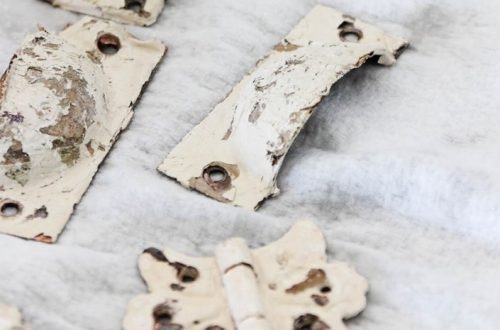What is a Pyrex Beaker?
Pyrex beakers are essential tools used in laboratories, kitchens, and schools. They are made from a special type of glass that is known for its strength and versatility. Let’s explore more about the material and design of Pyrex beaker.

An overview of Pyrex material
Pyrex is a brand of borosilicate glass known for its durability. Borosilicate glass contains silica and boron trioxide, making it resistant to heat and chemicals. This unique composition prevents cracks and deformations under extreme conditions. Pyrex material is also lightweight and transparent, making it ideal for precise measurements and observations. Its resistance to thermal shock allows safe use during rapid temperature changes.
Common designs and features of Pyrex beaker
Pyrex beakers come in various sizes, from small to large capacities. Most feature straight sides with a spout for easy pouring. Many designs include graduated markings for accurate measurement of liquids. Pyrex beakers often have flat, stable bottoms to prevent tipping during experiments. Their wide mouths make cleaning and pouring convenient. Some variants may also have reinforced rims for added durability. These features make Pyrex beaker practical for various applications.
Advantages of Using Pyrex Beaker
Pyrex beakers offer a range of benefits that make them highly valuable for various applications. Their unique properties ensure reliability, safety, and versatility. Let’s explore these advantages in detail.
Heat resistance and durability
Pyrex beakers can withstand high temperatures without breaking. Their borosilicate glass composition allows use under intense heat. This makes them perfect for heating liquids in laboratories or kitchens. They are also highly durable, reducing the risk of cracks and breakage during regular use. Their robust design ensures a long lifespan.
Chemical stability and non-reactivity
Pyrex beakers are resistant to most chemicals. This non-reactivity ensures accurate results during experiments. They do not leach substances into mixtures, maintaining purity. Their stability also prevents unwanted chemical reactions, providing a reliable container for sensitive materials. This makes them ideal for scientific and industrial applications.
Thermal shock resistance
Pyrex beakers handle rapid temperature changes safely. They can move from heat to cold without shattering. This thermal shock resistance offers great flexibility in experiments and cooking. Users can pour hot liquids into a cold beaker or vice versa with confidence. This ability minimizes risks in tasks requiring temperature variation.
These advantages make Pyrex beaker indispensable tools in laboratories, kitchens, and more. Their performance and reliability are unmatched by many alternatives.
Common Applications of Pyrex Beaker
Pyrex beakers serve a wide range of practical purposes. Their versatile design and properties make them a preferred choice for laboratories, schools, and kitchens.
Laboratory and scientific experiments
Pyrex beakers are common tools in laboratories. Their heat resistance allows safe heating of chemicals. They are non-reactive, ensuring accurate scientific results during experiments. Researchers use them to mix liquids and observe reactions. The transparency of Pyrex beaker aids visual inspection. Graduated markings ensure precise measurement of liquids. These features make them perfect for chemistry, biology, and physics experiments.
Educational and teaching purposes
Schools and universities often use Pyrex beaker in science classes. They help students learn measurement techniques. Teachers use them to demonstrate chemical reactions safely. Their durability withstands frequent handling by students. Pyrex beaker also aid teaching interactive experiments. Their clear markings improve accuracy in classroom activities. They are excellent tools for building foundational scientific skills.
Food and beverage preparation
Pyrex beakers are useful in kitchens. Their heat and chemical resistance suit cooking applications. Cooks use them to heat sauces and measure ingredients. Their spouts simplify pouring liquids, minimizing spills. Pyrex beakers are safe for preparing foods with acidic or alkaline properties. Their thermal shock resistance enables rapid temperature changes, like cooling hot liquids. These attributes ensure convenience in food preparation.
How to Properly Use and Maintain Pyrex Beakers
Pyrex beakers are durable, reliable, and versatile, but proper usage and care are essential. Follow these tips to maximize longevity and maintain safety.
Safe heating and cooling practices
- Avoid sudden temperature changes to prevent damage. Let your beaker cool down naturally before handling.
- When heating Pyrex beaker, ensure the heat source is evenly distributed to avoid stress points.
- Never use Pyrex beakers directly over open flames unless specified by the manufacturer.
- Before pouring hot liquids into a cold beaker, preheat it gently to avoid thermal shock.
- Use a low and gradual heating method when heating substances with high viscosity.
Cleaning and handling tips
- Wash Pyrex beaker immediately after use to prevent residue build-up.
- Use mild detergent and lukewarm water for cleaning. Avoid harsh chemicals that cause wear.
- Clean hard-to-reach areas with a soft brush or sponge to maintain clarity.
- Rinse thoroughly after cleaning to remove soap and residue that can compromise accuracy.
- Store beakers in a dry and cool place to prevent exposure to humidity.
Preventing scratches and damages
- Avoid stacking Pyrex beakers directly to prevent surface scratches and damage.
- Use a rubber mat or soft surface to protect the beaker’s bottom when handling.
- Prevent contact with rough objects that could cause chips or cracks.
- Replace damaged beakers immediately to avoid risks during experiments or cooking.
- Handle beakers with care, especially larger ones, which are more prone to accidental dropping.
By following these steps, you can ensure safe use and extend the lifespan of your Pyrex beaker.
Comparing Pyrex Beaker to Other Materials
Pyrex beakers stand out when compared to other common materials like glass and plastic. Understanding the differences can help you make informed choices for your needs.
Glass beakers: Key differences
- Material composition: Pyrex beakers are made from borosilicate glass, while standard glass beakers use soda-lime glass.
- Thermal resistance: Pyrex beakers have superior heat tolerance and can handle extreme temperature changes. Regular glass beakers are more prone to shattering under thermal stress.
- Chemical resistance: Pyrex resists most chemicals, making it ideal for experiments, unlike standard glass which can corrode.
- Durability: Pyrex beakers are tougher and less likely to crack or chip during use. Soda-lime glass is more fragile.
- Clarity: Pyrex is exceptionally clear, which enhances visibility during experiments. Regular glass may have a greenish tint.
Plastic beakers: Pros and cons
- Durability: Plastic beakers are less breakable than Pyrex, ideal for classroom use. However, plastic can scratch easily.
- Heat resistance: Pyrex beakers outperform plastic when it comes to withstanding high temperatures safely.
- Chemical reactivity: Plastic may react with certain chemicals, unlike the non-reactive nature of Pyrex.
- Weight: Plastic beakers are lightweight, making them easier to handle, especially for frequent use.
- Precision: Pyrex beakers offer better transparency and precise measurement markings than plastic alternatives.
By understanding these differences, you can choose the material that best suits your requirements.
Where to Buy Quality Pyrex Beaker
Finding quality Pyrex beakers is essential for accurate and reliable use. Selecting the right supplier ensures you receive genuine and durable products.
Trusted suppliers and online platforms
- Specialized laboratory suppliers: Reputable lab suppliers stock authentic Pyrex beakers of various sizes and types.
- Kitchenware stores: Many kitchenware retailers offer Pyrex beakers for home or cooking applications.
- Online marketplaces: Platforms like Amazon or eBay provide a vast selection of Pyrex beaker. Check for verified sellers and reviews before purchasing.
- Official Pyrex website: The official brand website guarantees genuine products and often includes product details and customer support options.
- Educational supply stores: Schools and educational resources typically sell Pyrex beaker for classroom experiments.
Factors to consider when purchasing
- Material authenticity: Ensure the beaker is made from genuine Pyrex borosilicate glass for durability.
- Measurement accuracy: Check that the graduated markings are precise and easy to read.
- Size options: Choose a beaker size suitable for your intended tasks, whether small-scale or large volume.
- Intended use: Select a beaker designed for your specific needs, such as laboratory, teaching, or cooking applications.
- Price and warranty: Compare prices across sellers and opt for products with warranty coverage to ensure quality.
- Customer reviews: Read reviews and ratings for insights into the product’s reliability and performance.
By selecting trusted sources and considering these factors, you can confidently purchase quality Pyrex beakers for your needs.
Why Is Pyrex No Longer Considered Borosilicate?
In recent years, changes in the manufacturing processes mean that not all Pyrex products are made from borosilicate glass. While traditional Pyrex beakers were composed of borosilicate, some newer products are made from soda-lime glass. Here’s what you should know:
- Material Shift: The shift to soda-lime glass in some consumer products has raised concerns about thermal resistance. Soda-lime glass is less durable and can break more easily under heat stress compared to borosilicate glass.
- Retaining Durability: However, authentic laboratory Pyrex products still consist of borosilicate glass, ensuring they maintain the high standards of durability and heat resistance.
- Consumer Awareness: When purchasing Pyrex, it’s essential to check product descriptions carefully to ensure you are acquiring the appropriate type for laboratory use. Look for indications that the glass is borosilicate if that is your requirement.
- Consequences for Laboratories: Labs must be aware of these changes. Equipment needs to be evaluated, and adjustments should be made to ensure that they use the right products for safe and effective experimentation.
Tips for Choosing the Right Pyrex Beaker
Choosing the right Pyrex beaker is essential for achieving optimal results in your tasks. Consider these factors to make an informed decision that suits your needs.
Size and volume considerations
- Understand your requirements: Determine the volume required for your specific applications before purchasing.
- Range of capacities: Pyrex beakers come in small (50 mL) to large (1000 mL) sizes. Choose accordingly.
- Room for expansion: Opt for a beaker slightly larger than the liquid volume you plan to use. Overflow can be avoided.
- Storage space: Ensure the chosen size fits well in your storage or workspace.
- Multiple sizes: For diverse tasks, consider buying a set of beakers with varying capacities.
Suitability for specific tasks
- Laboratory use: For scientific experiments, select beakers with precise measurements and graduated markings for accuracy.
- Educational purposes: Choose durable, easy-to-handle beakers for frequent classroom usage.
- Cooking and food prep: For kitchens, prioritize spouts for easy pouring and thermal shock resistance for quick cooling.
- Chemical resistance needs: If handling corrosive chemicals, ensure the Pyrex beaker is resistant to chemical reactions.
- Heat requirements: For high-temperature applications, select beakers compatible with heating methods like hot plates or water baths.
By focusing on these aspects, you can select the perfect Pyrex beaker for your tasks.
Conclusion: The Indispensable Pyrex Beaker for Laboratories
The Pyrex beaker is an essential tool for any laboratory, offering unparalleled benefits in terms of safety, versatility, and reliability. These beakers are designed to meet the demands of various scientific tasks, from accurate measurements to safe heating methods. With their durable composition and ease of use, Pyrex beakers exemplify the perfect balance between functionality and practicality. Whether you’re a professional scientist or a student, investing in high-quality Pyrex beakers will greatly enhance your laboratory experience. Make sure to include them in your repertoire of lab essentials for optimal results!








